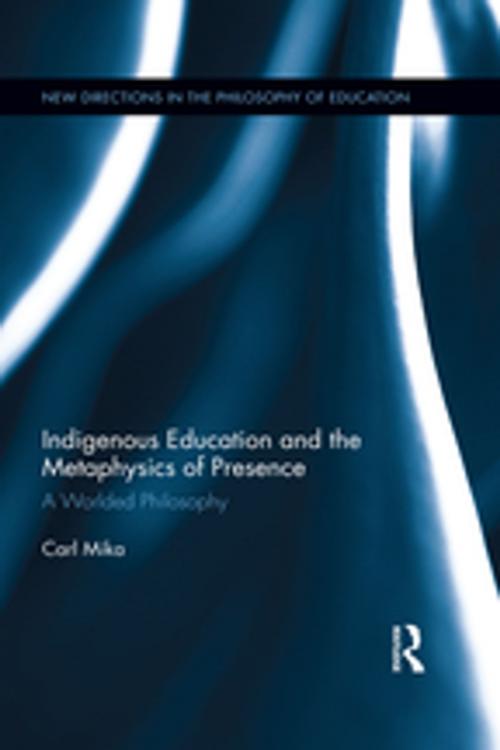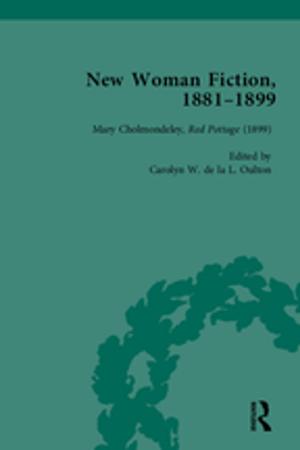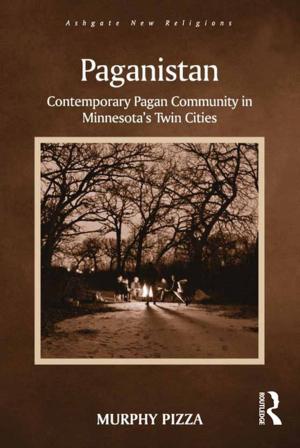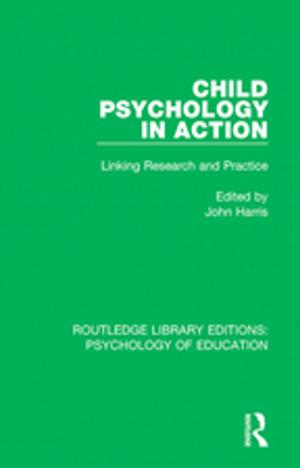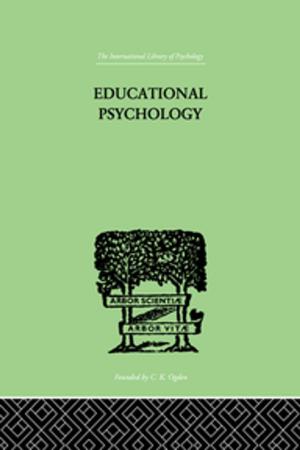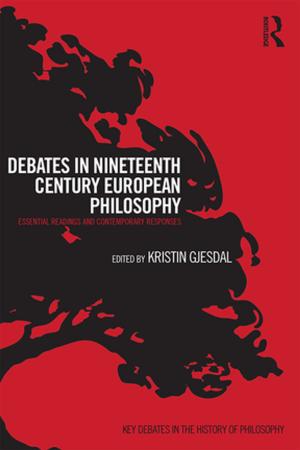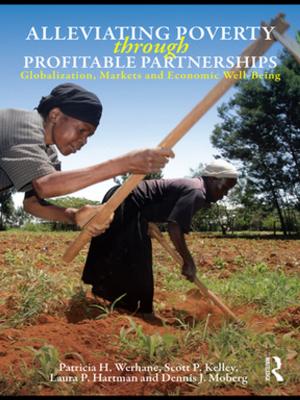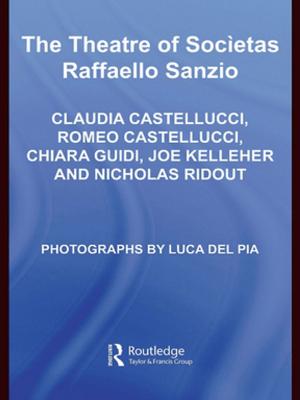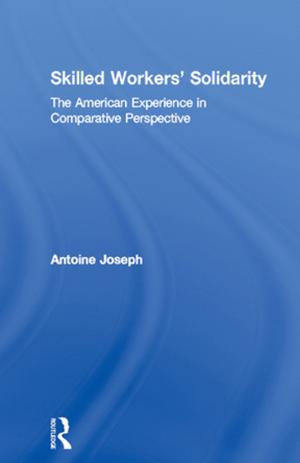Indigenous Education and the Metaphysics of Presence
A Worlded Philosophy
Nonfiction, Reference & Language, Education & Teaching, Educational Theory, Philosophy & Social Aspects| Author: | Carl Mika | ISBN: | 9781317540236 |
| Publisher: | Taylor and Francis | Publication: | March 16, 2017 |
| Imprint: | Routledge | Language: | English |
| Author: | Carl Mika |
| ISBN: | 9781317540236 |
| Publisher: | Taylor and Francis |
| Publication: | March 16, 2017 |
| Imprint: | Routledge |
| Language: | English |
Indigenous Education and the Metaphysics of Presence: A worlded philosophy explores a notion of education called ‘worldedness’ that sits at the core of indigenous philosophy. This is the idea that any one thing is constituted by all others and is, therefore, educational to the extent that it is formational. A suggested opposite of this indigenous philosophy is the metaphysics of presence, which describes the tendency in dominant Western philosophy to privilege presence over absence. This book compares these competing philosophies and argues that, even though the metaphysics of presence and the formational notion of education are at odds with each other, they also constitute each other from an indigenous worlded philosophical viewpoint.
Drawing on both Maori and Western philosophies, this book demonstrates how the metaphysics of presence is both related and opposed to the indigenous notion of worldedness. Mika explains that presence seeks to fragment things in the world, underpins how indigenous peoples can represent things, and prevents indigenous students, critics, and scholars from reflecting on philosophical colonisation. However, the metaphysics of presence, from an indigenous perspective, is constituted by all other things in the world, and Mika argues that the indigenous student and critic can re-emphasise worldedness and destabilise presence through creative responses, humour, and speculative thinking. This book concludes by positioning well-being within education, because education comprises acts of worldedness and presence.
This book will be of key interest to indigenous as well as non-indigenous academics, researchers and postgraduate students in the fields of philosophy of education, indigenous and Western philosophy, political strategy and post-colonial studies. It will also be relevant for those who are interested in philosophies of language, ontology, metaphysics and knowledge.
Indigenous Education and the Metaphysics of Presence: A worlded philosophy explores a notion of education called ‘worldedness’ that sits at the core of indigenous philosophy. This is the idea that any one thing is constituted by all others and is, therefore, educational to the extent that it is formational. A suggested opposite of this indigenous philosophy is the metaphysics of presence, which describes the tendency in dominant Western philosophy to privilege presence over absence. This book compares these competing philosophies and argues that, even though the metaphysics of presence and the formational notion of education are at odds with each other, they also constitute each other from an indigenous worlded philosophical viewpoint.
Drawing on both Maori and Western philosophies, this book demonstrates how the metaphysics of presence is both related and opposed to the indigenous notion of worldedness. Mika explains that presence seeks to fragment things in the world, underpins how indigenous peoples can represent things, and prevents indigenous students, critics, and scholars from reflecting on philosophical colonisation. However, the metaphysics of presence, from an indigenous perspective, is constituted by all other things in the world, and Mika argues that the indigenous student and critic can re-emphasise worldedness and destabilise presence through creative responses, humour, and speculative thinking. This book concludes by positioning well-being within education, because education comprises acts of worldedness and presence.
This book will be of key interest to indigenous as well as non-indigenous academics, researchers and postgraduate students in the fields of philosophy of education, indigenous and Western philosophy, political strategy and post-colonial studies. It will also be relevant for those who are interested in philosophies of language, ontology, metaphysics and knowledge.
